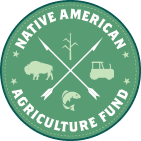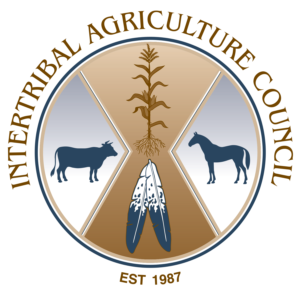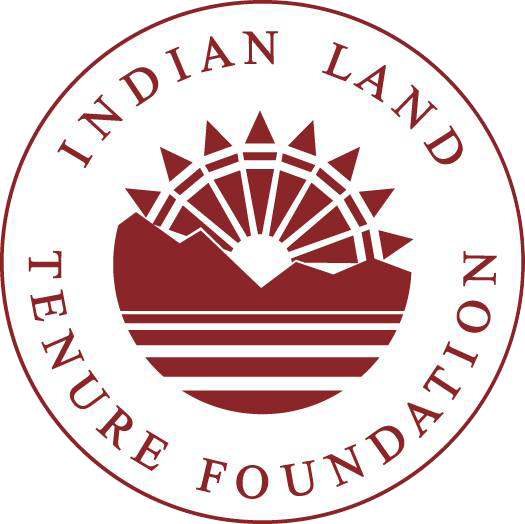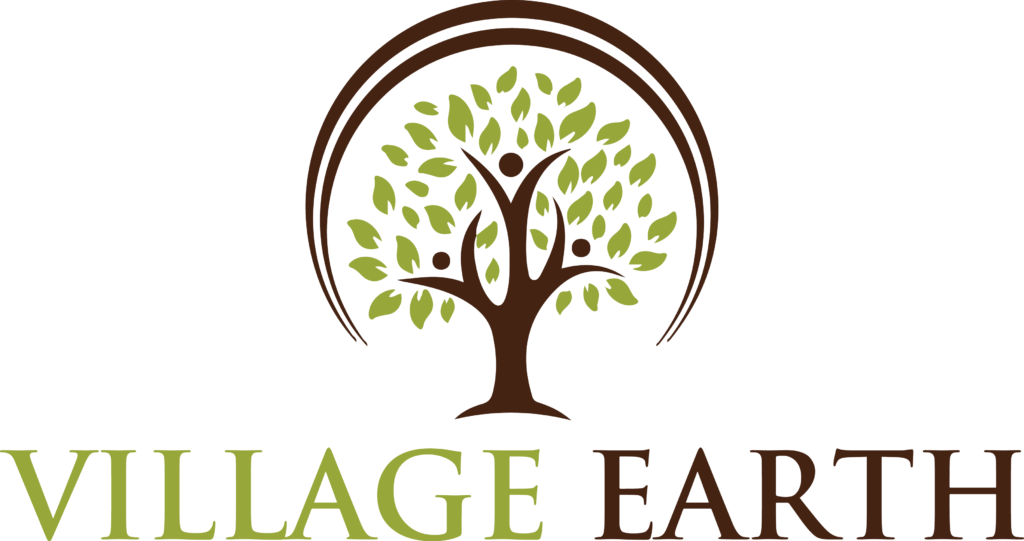ABOUT THE NATIVE LAND INFORMATION SYSTEM
The purpose of the Native Land Information System (NLIS) is to compile, consolidate, and visualize data and information that Indigenous peoples of North America need to protect their lands and resources and plan for the future.
Overview of the Native Land Information System (NLIS)
The Native Land Information System (NLIS) was developed by the Native Lands Advocacy Project (NLAP), a project of Village Earth, a 501(c)(3) nonprofit organization based in Fort Collins, Colorado, with funding from the Indian Land Tenure Foundation. The NLIS serves as a repository of learning resources, information, and data to help defend and protect Native lands for the benefit of Native peoples. The NLIS also aims to challenge the status quo of historical data colonialism in the United States.
"The colonial world is a world divided into compartments...Yet, if we examine closely this system of compartments, we will at least be able to reveal the lines of force it implies. This approach to the colonial world, its ordering and its geographical layout will allow us to mark out the lines on which a decolonized society will be reorganized."
Frantz Fanon
Table of Contents
This quote by Fanon adequately summarizes the strategy of the Native Lands Advocacy Project. For the Indigenous peoples of North America, these “compartments” refer to the reservation, the district, the allotment, the township, the section, and the tract. All of these compartments serve as wedges to divide Native peoples by superimposing a land tenure system that understands land purely as a commodity and detached from a cultural or spiritual connection. It is a land tenure system that places primacy on the Western construct of the individual and nuclear family, which, over time, grinds away at the bonds of extended families, bands, and tribes and prevents the development of alternative land uses and views. In brief, it is a historically constructed colonial system that continues to destroy Native rights to live on their land as they see fit.
Another key term in Fanon’s quote is “system.” The “system” cannot be revealed by looking at each compartment individually. Instead, we must step back and examine how all the compartments connect over time to reveal the underlying system. This leads us to an important goal of the NLIS: we present the data on Native lands in aggregate and within a historical context. By understanding the “system” and how it works in detail, we can develop more effective strategies to transform the system into a support structure that ultimately promotes the well-being and sovereignty of Native peoples.
Click here to learn more about our position on data sovereignty!
Empowering Native Control of Land Through Data
"[D]ata are the building blocks of good governance; however, equal access to these data is not guaranteed. Tribes may not have ready access to the data collected by external agents about their citizens, lands, and resources, which underscores the need for tribal protection, ownership and application of tribal data",
National Congress of American Indians - Support of US Indigenous Data Sovereignty and Inclusion of Tribes in the Development of Tribal Data
Much of the data about Native lands and Native peoples is collected and maintained by the United States Government. However, much of this data is not readily available to Tribes and Native peoples.
Established in 1824, the US Bureau of Indian Affairs is responsible for the administration and management of 55 million surface acres and 57 million acres of subsurface minerals estates held in trust by the United States for American Indian and Alaskan Native Nations. Despite this huge responsibility, there is very little transparency or accountability regarding the BIA’s performance as Trustee.
According to the most recent evaluation of BIA’s responsibilities, a 2009 Program Evaluation of the BIA Realty and Trust Program conducted by the Department of Interior’s office, the Inspector General acknowledged that “The BIA Realty and Trust Program plays a key role in keeping the DOI promise ‘to protect and improve the trust assets of American Indians, Indian tribes, and Alaska Natives.'” Yet, the Inspector General excoriated the Bureau for its continued failure to develop meaningful performance measures. Specifically, the report states that “Real Estate Services, acquisition and disposal of land, and lease compliance activities are significant functions that also lack measures.”
The failure of the BIA to provide even basic information about leasing and transactions of Native lands makes public scrutiny of these programs difficult, if not impossible.
Our Two Areas of Focus
Consequently, to the above, most data available at the national scale reflects the colonizer’s mindset and attitudes towards natural resources.
Ideally, available land use data would reflect local and culturally-specific perspectives specific to each Native Nation. This data does not currently exist for All Native Lands. Therefore, our focus on compiling available public data is part of the larger individual effort in which Tribes are engaged to produce their own data. However, due to the limitations of existing data at that scale, we are left with few options but to use existing datasets despite their limitations. An important part of our approach is to try and look at these colonized datasets from a different angle, process them in a way that brings more clarity, insight, and understanding into Native land history and structural inequality, and inform alternative design.
Generally, throughout the site, you will find that the Native Lands Advocacy Project mostly focuses on two primary areas:
- Documenting the history of Native land oppression in the United States
- Providing data support for sustainable planning on Native land
Disclaimer
This site, including all data dashboards, maps, and raw data, is intended for reference purposes only. Much of the data housed on this site are from the United States Government and/or third-party sources. Therefore, Village Earth, the Native Lands Advocacy Project, and its partners make no warranties or claims about its accuracy or completeness. Additionally, the information presented here should not be considered authoritative or superior in any way to the data, knowledge, information, and oral histories of Native peoples and/or Tribes as it relates to their lands and communities.
Our Commitment
- To approach our work with a good heart by always doing our best to honor Indigenous peoples, inherent sovereignty, and ways of knowing
- To critically and carefully weigh the value of a particular data set for promoting Native peoples vs. how that data might compromise a community’s privacy and right to opacity.
- To support Native research capacity-building
- To license our data products using the Creative Commons “Attribution-NonCommercial-ShareAlike” so it can be shared
but not be used for commercial purposes. - To practice a forward-thinking methodology geared towards constantly improving datasets
- To participate in changing the perception of Native land through data
NLAP Team

David Bartecchi
Executive Director of Village Earth & Co-founder of NLAP (2008-2023)
David has recently taken the final journey to the next world and we are profoundly shaken by his passing. Beyond the amazingly caring and humble leader that he was, he also brought to this project a set of incredible skills and knowledge. He had over 20 years experience working in Indian Country with a focus on Indian Land Tenure, Community Mapping, Bison Restoration, and challenging the numbers used by HUD in the Indian Housing Block Grant (IHBG). He received his M.A. in Anthropology from Colorado State University in 1998 and served as Executive Director of Village Earth since 2008. He will be forever missed.

Aude Chesnais, Ph.D.
Acting Executive Director of Village Earth & Director of Research and Co-founder of NLAP
Aude (pronounced "Ode") is a political ecologist and Director of Research for the Native Lands Advocacy Project (NLAP), which she co-founded with David Bartecchi in 2019. She has worked for over 12 years on issues of sustainable land use and food-systems on tribal land, with sustained collaboration with Lakota communities in South Dakota, US. Her work bridges qualitative research with GIS technology, data visualization and decolonial methodologies to design locally useful research that supports indigenous innovation and sovereignty. She is particularly interested in regenerative food-systems and how innovative research design can support the just transition to build climate resilient sovereign economies.

Emma Scheerer
Communications Director
Emma Scheerer is a citizen of the Tolowa Dee-ni’ Nation and considers all of the Pacific Northwest to be her homeland: from the beautiful Puyallup Valley where she was raised, to the wild rivers of southern Oregon and the shores of her tribal heartland in northern California. Her work as the Communications Director for NLAP involves contextualizing data related to sustainable land planning, climate adaptation, agricultural and food systems, and historical land oppression to support tribes in their sovereign stewardship of their lands. She received her B.A. in Writing & International Studies from George Fox University and has bylines in publications including Oregon Humanities and Northwest Review.

Max McGuire
Tribal GIS & Data Visualization Specialist
Max is a Tribal GIS & Data Visualization Specialist at the Native Lands Advocacy Project (NLAP), specializing in geospatial data analysis, management, and visualization. With a Master's in Environmental Studies and a Certificate in GIS Science & Technology, he employs advanced GIS tools and programming skills to support indigenous sovereignty and environmental justice. Passionate about blending technology with traditional ecological knowledge, Max focuses on how digital mapping and data analysis can bolster land defense strategies and promote the development of climate-resilient sovereign economies.

Daria Akhbari, Ph.D.
Tribal GIS & Data Visualization Fellow
Daria Akhbari is a Tribal GIS and Data Visualization Fellow at the Native Lands Advocacy Project (NLAP), specializing in programming, geospatial analysis, and statistical analysis. With over a decade of experience in data analysis, management, and visualization, Daria holds a Ph.D. in Geosciences. For the past six years, Daria has been an environmental consultant and scientist, passionately advocating for various environmental causes. He is dedicated to addressing the environmental impacts of climate change and its adverse effects on frontline communities.

Marissa LaBranche
Tribal GIS & Data Visualization Fellow
With ancestral ties to the Maliseet tribe in New Brunswick, Canada, Marissa LaBranche has always hoped to work alongside Native communities to conserve and protect their lands. These hopes paired with a lifelong passion for the outdoors inspired her academic journey. In 2020, she earned her B.S. in Environmental Studies with a minor in Conservation and Natural Resources from Southern New Hampshire University. Building on her foundation, she recently attained her M.S. in Geographic Information Systems from Unity Environmental University in 2023. Marissa is dedicated to applying her expertise to support the Native Lands Advocacy Project’s mission and to continue learning from colleagues and partners within the project.

Mauryn Morfitt
Writer & Researcher
Mauryn is a writer and researcher with a passion and dedication for working on behalf of Indigenous communities. She earned her bachelor's degree in English and Textual Studies from Syracuse University and her master's in Indigenous Peoples Law from the University of Oklahoma. She is a citizen of the Cherokee Nation in Oklahoma.
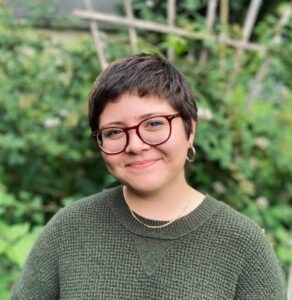
Chloe Micayla-Gonzales
Social Media Strategist & Digital Media Coordinator
Chloe merges an educational background in landscape design and management from the New York Institute of Art and Design with a deep commitment to engaging the digital community through social media development. She is adept in crafting engaging social media strategies that fuel growth and nurture meaningful connections within communities. Currently pursuing her Bachelor of Science in Marketing from the University of Colorado Denver’s School of Business, Chloe remains steadfast in her mission to drive purposeful and effective community engagement through her role in social media coordination.
Sponsors

